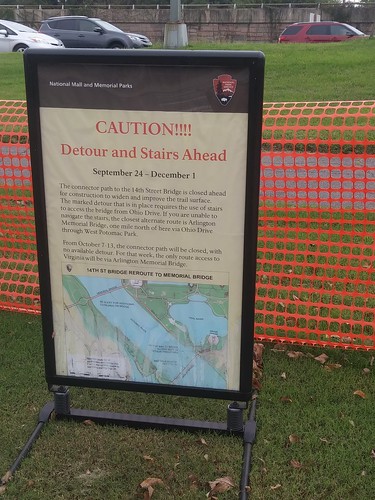Unintelligent transportation systems/treating cyclist movement as an afterthought

"Intelligent transportation systems"
aim to provide innovative services relating to different modes of transport and traffic management and enable users to be better informed and make safer, more coordinated, and 'smarter' use of transport networks.I didn't think about this much til maybe 8-10 years ago, when I was riding south down Adelphi Road coming from the University of Maryland. Midway on the road between University Boulevard and East-West Highway is a high school, and they were letting out around this time.
One of the intersections was closed, I don't remember why, an accident or something. No one told the people at the high school, so buses and cars went north only to get stuck. There were no or few police personnel out there aimed at diverting traffic to the parallel roads, to keep it moving rather than bottlenecked. It became a quagmire--unless you were on a bike and able to divert.
It made me realize the difficultly of communicating this kind of information in real time but increasingly there are ways to do it through NFC (near field communication) and the creation of real-time network connections between vehicles, where this info can be communicated, just like an "emergency broadcast signal" on phones.
 Still, there are other ways. Of course, the big digital signs that announce "Road Work Ahead," etc.
Still, there are other ways. Of course, the big digital signs that announce "Road Work Ahead," etc.I was pissed off when I got up to the Bridge only to find this sign saying it was closed, and for this particular period, there wasn't an immediate workaround, instead you had to double back to Memorial Bridge to cross between DC and Virginia.
Because of the added time, and my schedule, instead, I skipped the trip.
I find that advanced communication concerning outages on bikeways tends to be an afterthought.
For example, with this particular matter, they could have posted signs at various points on the bike route starting around Constitution Avenue so that cyclists would be able to divert without having to go up to the bridge and then doubling back.
This is a problem too on the Metropolitan Branch Trail, where a building is being constructed. Every so often they close the route when certain crane movements occur. The closures are "brief" -- 5 to 10 minutes -- but you get stuck, they don't know how long it will take, etc.
Just like with the 14th Street Bridge matter, if there were signs posted at diversion points on either side of the interruption, people would be able to divert with no real inconvenience.
Frustrating.
====
I don't subscribe to the real-time DC Alert system but I am on the DDOT press list, and I don't remember seeing any notice of the 14th Street Bridge pathway being closed.
It was mentioned in DCist, which I don't read because the commenters are so puerile, and a different site with which I am unfamiliar, called DC Commute Times, "14th Street Bridge Entrance Closed to Cyclists Starting Sept. 24."
Labels: bicycle and pedestrian planning, intelligent transportation systems/ITS, traffic engineering



0 Comments:
Post a Comment
<< Home